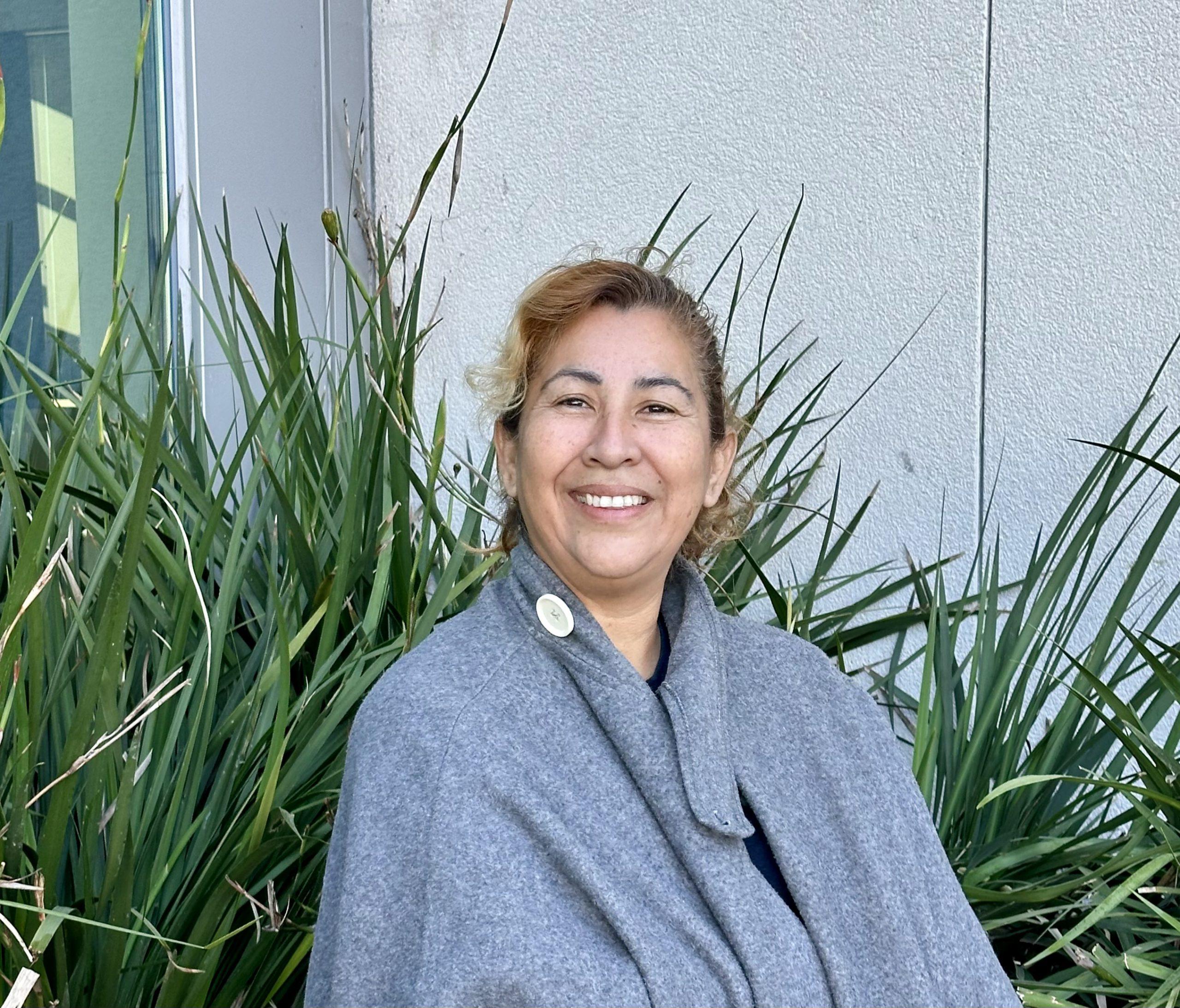In September 2022 spinal cord stimulation therapy was first approved for use at Alameda Health System (AHS) and it represents an important and innovative option in the treatment of chronic pain. For patient Elena Torres, it has freed her from being trapped by agonizing pain and dependence on opioid medications.
“It’s nothing less than a miracle,” said Torres about receiving a spinal cord stimulator just over three months ago. “I was desperate to find a solution for the pain and thanks to all of my doctors at AHS, I finally have my life back and I can take care of my family again.”
A year ago, Torres was hit by a car in a freak accident outside her home and suffered injuries to her legs and back as well as severe nerve damage. Her recovery was made even more difficult when she developed an infection in her leg and was admitted to Highland Hospital for several months.
After returning home, Torres found herself unable to manage her pain with the prescribed medications. The pain in her legs and back was severe but she said it was the constant feeling of sharp electric shocks throughout her body that left her unable to stand, walk or sleep through the night.
“I was in horrible pain and because the medicine was so strong, I couldn’t be present for my two youngest children and I could no longer work,” she said. “I was desperate for relief and I just wanted to be able to live something close to a normal life again.”
That’s when she first heard about the spinal cord stimulator program from Dr. Kim and thought this could provide the help she needed. She qualified for the program and today is one of four AHS patients who have received the implant with successful outcomes.
A spinal cord stimulator is an implanted device that sends low levels of electricity into the spinal cord to relieve pain and patients have an iPod controller that allows them to change the stimulation settings within prescribed limits. “It uses electrical stimulation to disrupt nerve pain signal transmission from the pain source to the brain,” shared Eric Kim, MD, anesthesiology and member of the spinal cord stimulator program team.
“It provides pain relief along with improvements in sleep, mood and mobility for patients like Mrs. Torres.”
Candidates for the spinal cord stimulator program must meet certain criteria including chronic nerve pain not responding to conservative treatments like physical therapy and medication. In addition, candidates must participate in routine screenings including neuroimaging and a mental health evaluation.
For Torres, the pain relief was immediate. “I knew right away during the seven-day trial that my body was responding well to the stimulator,” she shared. “I couldn’t wait to get the permanent implant because for the first time since my accident, my dream for a future without relentless pain seemed possible.”
Today, almost four months after getting the spinal cord stimulator, Torres continues to see improvements and shared that her pain level has already been reduced by 70%. Her stamina is increasing, she is no longer dependent on opioid pain medication and she can now stand and walk up to four hours at a time without getting fatigued.
Torres said she is both optimistic and realistic as she continues to heal and believes managing expectations is key. For example, while her pain has not completely disappeared, she can manage it well and shared that her quality of life has improved 100%.
She is happy spending time with family and excited about returning to work as an interpreter for a paralegal service. Torres attributes her progress to trusting her doctors and trusting the process.
The coordinated care team from the department of anesthesiology, perioperative and pain medicine helping to make these exceptional patient outcomes possible includes Irina Williams, MD, chief, pain medicine division, Alec Peniche, MD, anesthesiology, Nicholas Pirnia, MD, orthopedic surgery, Sun Ik Lee, MD, neurosurgery, Sunavo Dasgupta, MD, anesthesiology, Priya Agrawal, anesthesiology, Eric Kim, MD, anesthesiology, John Lang, clinical psychologist and Eric Beane, physician assistant and nurse practitioner.
“The spinal cord stimulator program and the amazing medical staff who made it possible changed my life and the lives of my children forever,” said Torres. “I am incredibly grateful and I am so proud to be an AHS patient.”

